A dry and itchy scalp is embarrassing, irritating and can often cause discomfort. Many people experience skin irregularities on their scalp, and there are various causes – both internal and external. Understanding the causes and the knowing about the solutions is the first step towards improving and stabilising skin conditions.
What Is It?
WHAT IS A DRY AND ITCHY SCALP?
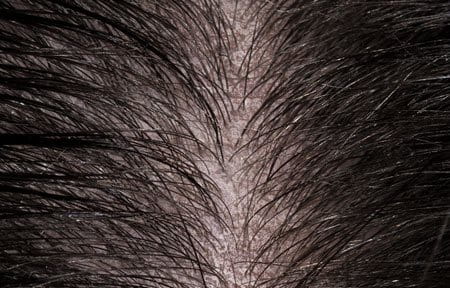
When your scalp’s natural moisture balance is disturbed, an itchy, dry scalp can be the result. A dry and itchy scalp can be associated with ageing or skin conditions such as Atopic Dermatitis or Psoriasis, and its symptoms can range from very mild to extreme.
Major Causes
MAJOR CAUSES OF A DRY AND ITCHY SCALP
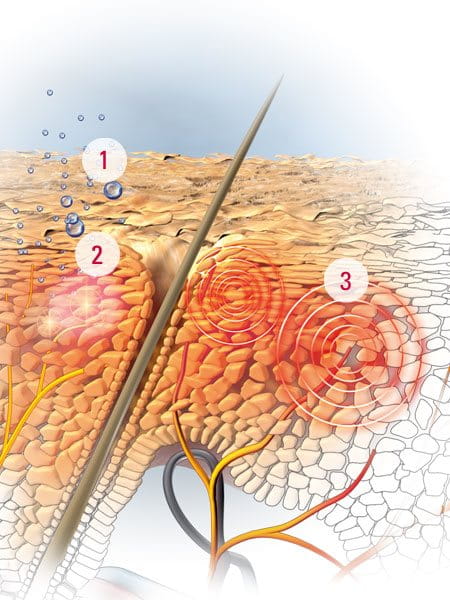
Internal factors that can cause a dry and itchy scalp include:
- Skin conditions such as Atopic Dermatitis or Psoriasis
- Age – the older you get, the dryer your skin becomes
- Physical or emotional stress
- Genetic factors
- Hormonal changes
External factors that can cause a dry, itchy scalp include:
- Changes in temperature or seasons
- Lifestyle factors, such as poor diet or smoking
- Certain medications
- Environmental pollution
- Cosmetic shampoos, soaps and hair treatments
Once your scalp’s natural moisture is lost, its protective layer can become compromised. This can allow harmful substances to easily penetrate the skin, leading to microinflammations of the scalp. These microinflammations can cause your scalp to become even more irritated – leading to itching, redness, and a sensation of tautness.
Microinfoammations and your scalp
What are microinflammations? They’re mild inflammations of the skin. They’re so mild, in fact, that even clinical testing won’t pick them up. But if we study skin tissue encountering microinflammations, we can detect the presence of inflammatory immune cells – in other words, the skin is responding to irritation with inflammation and thereby attempting to repair itself. If these skin cells are then subjected to further irritation, the skin can flip into a “true” inflammatory response.
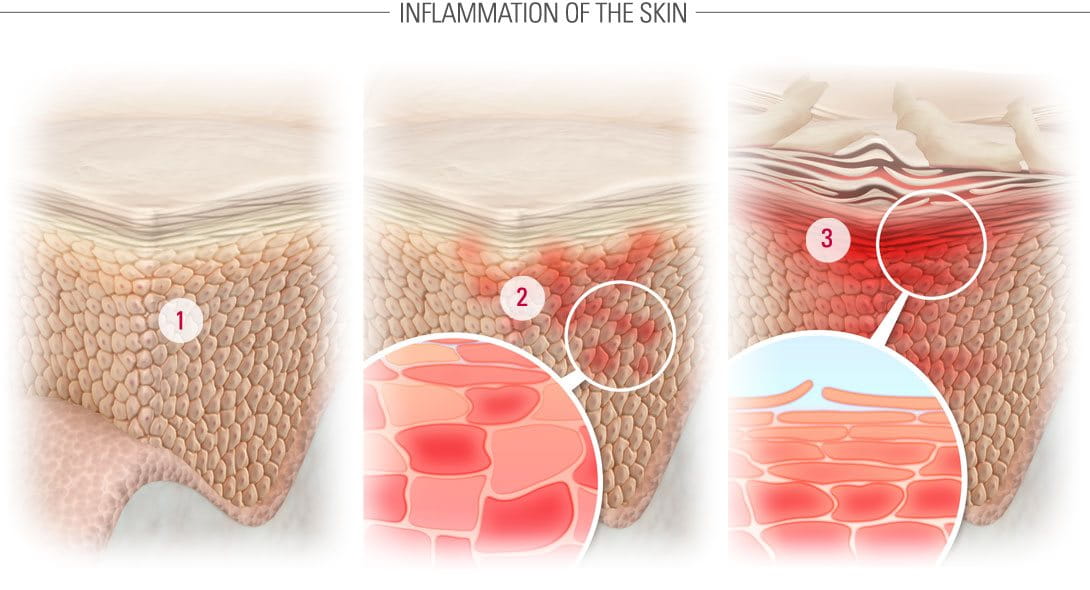
How are they related to scalp conditions? There’s growing evidence that microinflammations of the scalp are involved in most common scalp disorders – from thinning hair and dandruff, to scalp dryness, itchiness and sensitivity.
If you experience sudden hair loss or brittle hair, you may have an underlying health problem such as thyroid disease, iron deficiency, or an autoimmune disease. Some medications can also cause hair loss. Contact a dermatologist in all instances to get further information.
Common Myths
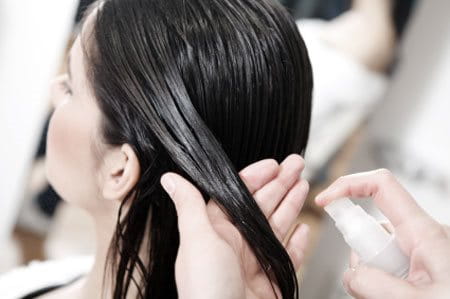
Vinegars, natural oils, and even athlete’s foot spray are among the remedies that have been claimed to treat an itchy and dry scalp. But there is no evidence to support these remedies.
Solutions
RECOMMENDED SOLUTION
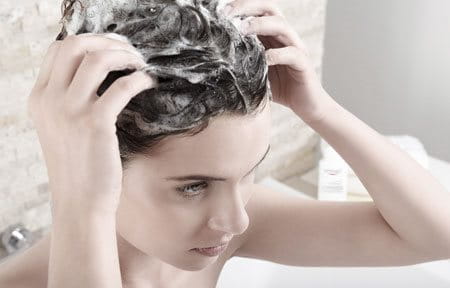
Eucerin DermoCapillaire CALMING UREA SHAMPOO and Eucerin DermoCapillaire CALMING UREA SCALP TREATMENT have been proven to soothe and relieve scalp itching and dryness while giving your hair softness and a healthy shine. Learn more about the shampoo or scalp treatment.
DO YOU HAVE A DRY AND ITCHY SCALP?
You may have a dry and itchy scalp if…
You’re frequently scratching your scalp: Some people have even reported scratching in their sleep.
You’ve recently been exposed to one or more of the causes listed above: Especially if your symptoms developed soon afterwards.
You may have another scalp condition if…
You have white flakes or yellow scales on your scalp and hair: You may have dandruff or seborrhoeic dermatitis.
You have red, scaly, silvery-looking patches on your scalp: You may have Psoriasis.
Attention
See your doctor or your dermatologist if you’re concerned, your symptoms are severe, or your scalp becomes inflamed, weepy or sore.
Our brand values

We deliver a holistic dermo-cosmetic approach to protect your skin, keep it healthy and radiant.

For over 100 years, we have dedicated ourselves to researching and innovating in the field of skin science. We believe in creating active ingredients and soothing formulas with high tolerability that work to help you live your life better each day.

We work together with leading dermatologist and pharmacist partners around the world to create innovative and effective skincare products they can trust and recommend.




